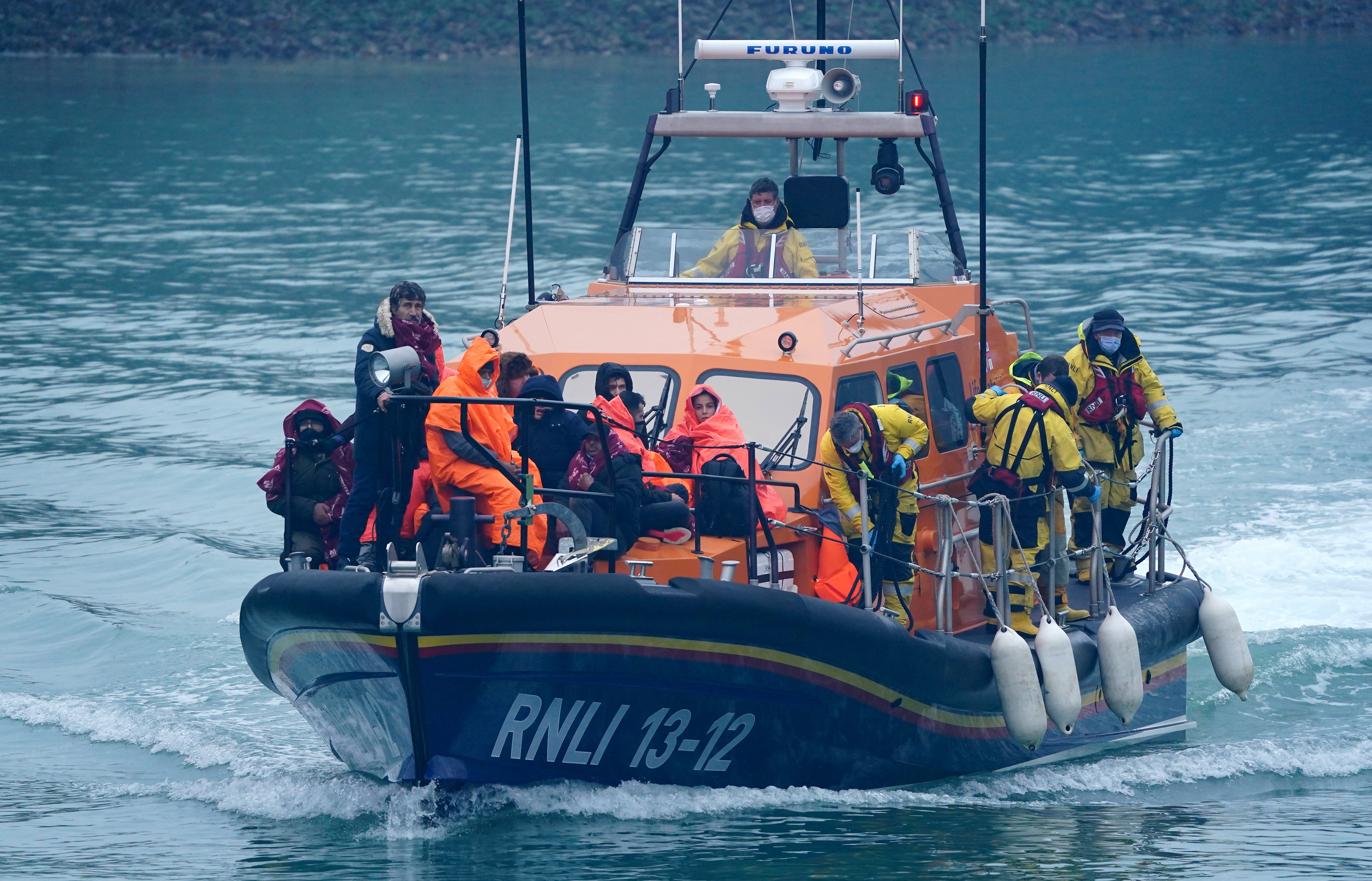‘Fundamental questions remain’ over plan to draft military in to tackle Channel crossings, warn MPs
Government’s decision to put Navy in charge of counter-migration on English coast appears to have been ‘borne of desperation’, says Defence Committee

Your support helps us to tell the story
From reproductive rights to climate change to Big Tech, The Independent is on the ground when the story is developing. Whether it's investigating the financials of Elon Musk's pro-Trump PAC or producing our latest documentary, 'The A Word', which shines a light on the American women fighting for reproductive rights, we know how important it is to parse out the facts from the messaging.
At such a critical moment in US history, we need reporters on the ground. Your donation allows us to keep sending journalists to speak to both sides of the story.
The Independent is trusted by Americans across the entire political spectrum. And unlike many other quality news outlets, we choose not to lock Americans out of our reporting and analysis with paywalls. We believe quality journalism should be available to everyone, paid for by those who can afford it.
Your support makes all the difference.“Fundamental questions remain” over the government’s plan to draft the military in to curb the rise in Channel crossings – a decision that appears to have been “borne of desperation”, cross-party MPs have warned.
A report by the Defence Committee lambasts the Home Office and the Ministry of Defence (MoD) for “squabbling” over the use of “pushbacks tactic” to deal with small boats trying to reach England from France, calling exchanges in the Commons and on Twitter "deeply unedifying".
Ministers announced in January that the Royal Navy was to be put in charge of cross-Channel counter-migration activity on the English coast, known as Operation Isotrope, taking over from Border Force to take “operational primacy” of the situation.
Defence minister James Heappey said last month that the operation would seek to prevent the arrival of small boats "on their own terms" in the UK while protecting lives at sea, adding the MoD was working closely with the Home Office and others.
But a new report from the Defence Committee has called Operation Isotrope an "ill-defined” policy announced “prematurely” and which “threatens to tarnish the Royal Navy’s reputation”.
The committee warns that the MoD, and especially the Royal Navy, was “already over-stretched and under-resourced”, and that the additional responsibility would place “huge pressure on a department with a demanding-enough brief”.
“The decision to call in the armed forces to address migrant crossings has far-reaching implications across government, yet fundamental questions remain over Operation Isostrope. The services cannot become a fourth blue light service,” said Mr Spellar.
“In order to meet the demands of this new policy, we should be under no illusion that sacrifices to defence will be made elsewhere. The government should set clear parameters for Operation Isotrope and announce a definitive end date and handover back to the Border Force.”
Following the announcement of the MoD’s involvement, the armed forces minister told the House of Commons three times that the Royal Navy and Royal Marines would not engage in “pushbacks” - a controversial tactic whereby small boats are physically turned around.
But two weeks later, home secretary Priti Patel told the Home Affairs Select Committee that while the armed forces minister had given his “view”, the operational work between the two departments was “a work in progress”.
This resulted in a tweet from the MoD press office stating: “The Royal Navy and the Royal Marines will not be using push back tactics in the English Channel, although a military commander will retain the existing ability to instruct Border Force to use them when appropriate.”
The committee questions whether announcing the policy before agreeing the detail was a “wise move or rather one borne of desperation”, adding that it hopes “lessons will be learned” from this experience.
John Spellar, vice-chair of the Defence Committee, said: “The policy announcement left much to be desired. Squabbling between the great offices of state severely undermines public confidence in government. Government policies should be carefully planned and considered, not rushed out to quash less-than-favourable frontpages.
The report also warns that the police “threatens to tarnish the Royal Navy’s reputation”, as it has “other, more pressing priorities” may be legally unable to be effective in the role, instead becoming a “taxi service” for migrants crossing the Channel.
It comes after, one week after the plans were announced, the Defence Committee sought to question government representatives about the plans during an evidence session - but the MoD declined to put forward a minister or official.
The report adds: “The fact that, six weeks on from the initial announcement, the government is still unable (or unwilling) to answer questions about this issue does not inspire confidence.”
The committee has called on the government to set out which existing Royal Navy commitments will be given up in order to divert resources to the operation - and for a “clear end point” at which the operation will be handed back over to the Border Force.
The MoD has been approached for comment.
Join our commenting forum
Join thought-provoking conversations, follow other Independent readers and see their replies
Comments